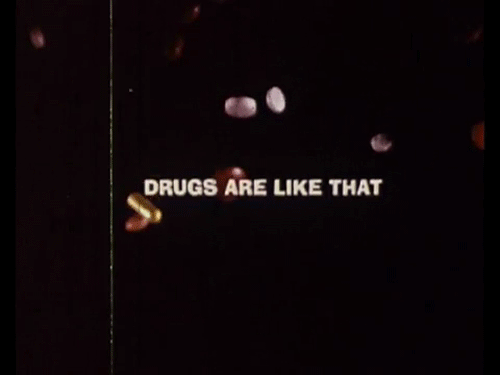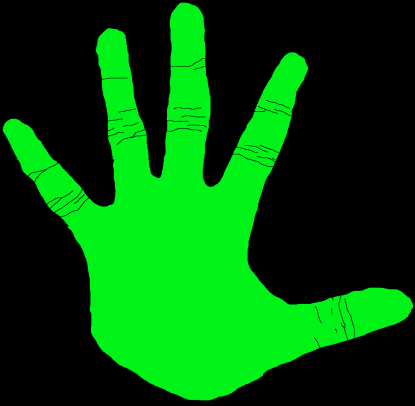Continuing from part 3 of the Dune Book Club, run by Comic Book Girl 19.
Pages 166-262
Notes before the Twitch Stream
Whew, lot of pages to cover for this section, so I’ll be a bit more selective. Anyway, it’s at this point in the readings where I started to notice the sort of analogies Frank Herbert has been using for various, um, things. Mainly in regards to describing things as insects. For instance, the poison snooper:
Page 165:
The thing’s sensor arms hung limply over the table, reminding Paul of some weird insect newly dead.
And again on page 194, when describing the vehicle that collects spice:
It looked like a great tan and blue beetle with many wide tracks extending on arms around it.
This analogy extends to man-made inventions, as if, despite how high tech it may all seem, is a mere insect ready to be squashed by the hands of fate, by the hands of destiny, by the hands of nature, by the hands of God. That no matter how powerful we become, no matter how many precautions we take, we are still at the mercy of fate.
Or it could be simpler than that.
Page 206:
All of a pattern, he thought. You can plumb us by our language–the precise and delicate delineations for ways to administer treacherous death.
Indeed, this philosophy is followed through with the way the Bene Gesserit carry/teach themselves.
Page 220
You will find it fairly simple to determine the root languages of your subjects, of course, both through voice inflections and speech pattern.
So it can also be interpreted as a way of saying that everything we do, every precaution we take, has a pattern to it, despite how much we try not to make a pattern. Much like how one must walk without pattern to avoid the worms. I suppose the same philosophy stands here.
Page 237:
There is no escape–we pay for the violence of our ancestors.
Karma.

Anyway, slowly throughout this section, we see the Duke seeming to accept his fate, that he is doomed on this planet. He is already planning ahead for when that would happen, what can be done to save Paul and Jessica, even if consciously he doesn’t want to fully admit the hopelessness of the situation. But both he and Thuffir and slowly being eroded by stress and lack of sleep, not to mention how homesick many of their loyal friends and guards have become. It does seem inevitable amidst everything that they were bound to fall to ruin. But what choice did they really have prior to coming to Arrakis? Fate.
Page 171, that quote by Princess Irulan, mentions how it’s only by tragic political circumstances that put Duke Leto at odds with the Emperor. The Emperor wished he and Leto were good friends, viewed Leto as a son, Leto even resembled the Emperor on a physical level, but it’s not meant to be. I do wonder, though, how fucked up politics can be to do that to people. There’s also a hint in this paragraph that Irulan isn’t so different from Paul. She seems intelligent, insightful, and hints that she also has training similar to that of the Bene Gesserit, in that she can read people through their speech patterns and mannerisms. Christ it must suck to be a poker player during that time period.
There’s mention later on about how few shields the Atreides have access to. How few shields there are in general on Arrakis. At first they (the Atreides) suspect Harkonnen/Imperial sabotage, but it’s later explained that shields are a detriment on Arrakis, that shields attract worms, and don’t stand up very well to sand storms.
Page 172:
Kynes sneered at the shield pattern, thinking: Arrakis has a surprise for them there!
Plus they limit mobility. I do wonder if the Harkonnen’s knew this, and intended to use it to their advantage once the trap is sprung.
I also begin to wonder about the limits of the Missionaria Protectiva. I mean, I get it, it’s used to spread legends around the planet for the purpose of making it easier for future Bene Gesserits (and their allies/companions, in this case the Atreides) to hold powerful positions and make the natives more accepting of them. But one has to wonder if they could’ve made a prophecy like this:
Page 179:
And Kynes rubbed his cheek, thinking of the legend: “He shall know your ways as though born to them.”
This thought is made after Kynes notices that Paul wears his stillsuit perfectly, even though it’s his first time ever putting it on. How could the Missionaria Protectiva predict that? How could they predict that the Atreides (or at least a member of the Atreides) would know the ways of the Fremen? That’s a bit far-fetched. It could be that the Fremen evolved the legends in their own way. And if that’s the case, and if the made-up legends are being fulfilled, that’s either a big coincidence (fate), or it implies that there is something to the legends, to the prophecies. A guiding hand by the supernatural? Something I hope Comic Book Girl 19 discusses.
Page 180:
“your major water loss is through the palms of your hands.”
Guess one should worry when their palms aren’t dry then, which can happen not just by heat, but through nervousness.

Page 187:
“Is there a relationship between worm and spice?” the Duke asked.
Something to keep in mind for later. No definitive answer yet, but the implication seems to be that yes, there is a relation.
“When God hath ordained a creature to die in a particular place, He causeth that creature’s wants to direct him to that place.”
Foreshadowing for Leto.
Greatness is a transitory experience. It is never content. It depends in part upon the myth-making imagination of humankind. The person who experiences greatness must have a feeling for the myth he is in. He must reflect what is projected upon him. And he must have a strong sense of the sardonic. This is what uncouples him from belief in his own pretensions. The sardonic is all that permits him to move within himself. Without this quality, even occasional greatness will destroy a man. — Princess Irulan
Emphasis added on the quote above.
Transitory: Existing or lasting only a short time; short-lived or temporary.
Sardonic: Scornfully or cynically mocking.
The idea here being that one should be cynical towards greatness, or towards himself, or towards those who cast greatness upon him. Greatness shouldn’t ever go to ones head, or there will be consequences.
The Law of the Minimum, page 225:
“Growth is limited by that necessity which is present in the least amount. And, naturally, the least favorable condition controls the growth rate.”
[…]
“And remember that growth itself can produce unfavorable conditions unless treated with extreme care.”
I believe this to be the supreme philosophy of parenting and civilization. Growth in harsh conditions can cause stronger individuals to mature. But don’t overdo it, or else those individuals will die regardless, or become maniacs. Just a healthy amount of unfavorable conditions to toughen everyone.
Page 232
“In our society, people shouldn’t be quick to take offense. It’s frequently suicidal.”
[…]
“And lots of times, no offense is meant, but people die anyway. It doesn’t make sense.”
Well, I certainly see this as an argument against Social Justice Warriors, and especially the politically correct crowd (or are those both the same thing?).
Page 233:
“When strangers meet, great allowance should be made for differences of custom and training.”
Indeed. Goes along with not taking offense so easily. And surprisingly enough, I find this train of thought regarding not taking offense so easily carried on in pages 246-7:
“Is it defeatist or treacherous for a doctor to diagnose a disease correctly? My only intention is to cure the disease.”
And now for the big one. The main section I wish to dissect and discuss on a philosophical level. Pages 248-9:
“Thufir, I want you to examine your own emotional involvement in this. The natural human’s an animal without logic. Your projections of logic onto all affairs is unnatural, but suffered to continue for its usefulness. You’re the embodiment of logic–a Mentat. Yet, your problem solutions are concepts that, in a very real sense, are projected outside yourself, there to be studied and rolled around, examined from all sides.”
[…]
“Anything outside yourself, this you can see and apply your logic to it,” she said. “But it’s a human trait that when we encounter personal problems, those things most deeply personal are the most difficult to bring out for our logic to scan. We tend to flounder around, blaming everything but the actual, deep-seated thing that’s really chewing on us.”
Reminds me of a verse or two from the Bible. I don’t recall the chapter the verse was in, but it basically went along the lines of how one is unable to see the faults in others accurately if he is unable to see the faults within himself. Thus one should be as critical of themselves as they are of others. Be aware of your own weaknesses, of your own biases, before seeking to become aware of the weaknesses and biases of others. Not every problem is an external one. The worst problems are arguably the ones that are internal. In other words, a doctor should be able to diagnose diseases he himself carries before diagnosing others, let alone treating them.
After the Twitch Stream
The hawk symbol the Atreides uses symbolizes “the higher self”, someone who sees everything from a higher perspective, like a hawk looking down among the plains.
Back to that line above, “The sardonic is all that permits him to move within himself. Without this quality, even occasional greatness will destroy a man.” An analogy for this would be famous rock stars of the past who let their “greatness” get to them, and it caused their downfall. If you’re to be famous to an extent, people project their own image of you onto you, and in such a scenario you should be aware that you are not your myth. If you start believing in it and not seeing the farce/mockery of it all, you will be destroyed.
Drugs, they’re a thing, and are legal, in the Dune universe. But if you’re not responsible about using them, others will use that addiction against you.

So Dr. Yueh did kill Shadout Mapes and that smuggler Tuek. Huh. Kinda makes one wonder about that conditioning he was supposed to have gone through which guarantees he won’t kill anyone. That justification of, “He’s not directly killing the Duke, and thus not directly killing another human being,” doesn’t seem to work here. Guess the Harkonnens did a better job at breaking the conditioning than we first thought. Though now I’m starting to wonder if Frank Herbert did something a bit far-fetched within the confines of the Dune universe here. Would have to know details about the conditioning to know for sure. Oh well.


[…] Continued in part 4. […]
LikeLike
[…] from part 4 of the Dune Book Club, run by Comic Book Girl […]
LikeLike